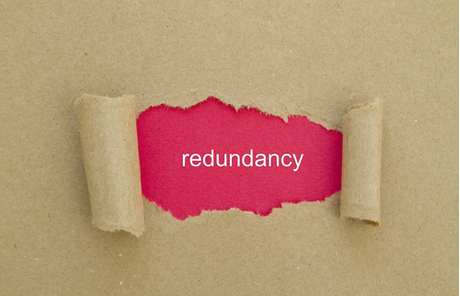
How to Tell if Redundancy is Looming
- December 13, 2019
Back in March, we covered the topic of what to do in the unfortunate event that you are made redundant – it’s never an easy situation for anyone to deal with and can usually come as an unpleasant shock.
But unfortunately, it is a reality for many organisations and employees.
While redundancy might be inevitable for your current role, spotting the signs of it can help to prepare you for when the time comes.
So, in this article, I will cover the signs to look out for which typically indicate that your company is soon to go through a ‘restructuring’ period resulting in redundancies.
1. Difficult Times
One of the earliest signs of looming redundancies is that your sector or particular company is facing an economic downturn.
For example, while there is always a need for in-house and specialist accountants, there will be economic up and downturns which impact the commercial and financial sector. Is your industry or company currently enjoying growth, or are you aware of problems which are causing your organisation to struggle?
Shorter periods of economic unsettlement are less likely to cause redundancy issues, but if there has been a prolonged period of downturn, then this can be a sign of approaching redundancies.
2. A Freeze on Recruitment
Have there been vacancies in your department that have remained unfilled for a while? And every time someone raises the issue with a manager, there is some excuse?
Companies who are experiencing financial issues typically put a freeze on recruitment while they attempt to save money and sort out the more significant problems related to how they can improve their situation.
It can be normal for some harder to fill roles to appear vacant for extended periods, but if there has been a sustained blanket ban on recruitment for a while, this can be one of the earliest signs that redundancies are on the cards.
3. Cost-Cutting
While regular cost-cutting is usually a symbol of good fiscal sense, large cost-cutting at the expense of the work your company does, or to the detriment of the organisation, can be a warning sign that there is trouble which could result in redundancies.
Have expenses that were once routine been pulled-up for inspection? This can be anything from the daily office newspapers being cancelled to the annual conference that every team member was once invited to being cut to a select few.
4. Secretive Managers
Has the atmosphere in the office changed recently? Signs that all is not well at the top can include your managers becoming guarded. Even something as seemingly insignificant as your managers avoiding eye contact or 1:1 conversations can be a clue.
One candidate who I worked with in the past told me that they had been unsuspectedly made redundant. They were then shocked to find out that their colleagues had realised what was happening weeks before when their manager had started disappearing down corridors and avoiding eye contact at all cost.
5. Seeing More of the Director or CEO
Organisations who are at risk of redundancies will typically go through a period where the CEO is more visible and observant of daily goings-on, and this will be especially notable in organisations where these executive visits are usually a rarity.
This can be as they seek to observe what is going on in your office and where they can make cuts in tasks or, eventually, people. If you have witnessed an increase in senior staff getting together in meeting rooms or private offices, this could be a sign that they are planning redundancies.
7. Lack of Work
Finally, a significant decrease in your workload that lasts over a longer time-frame is one of the surest signs that your company will be making redundancies soon.
Have clients or customers been dropping contracts and taking business elsewhere? Commercial organisations need recurring custom to stay afloat, and the cold hard truth is, if your company has been losing business for an extended period – there will be redundancies.
Finally
Most people fear redundancy but remember that it can, and does, get better.
It can be an opportunity to reassess your career, and to make avenues into a new role with a different company. When a company makes redundancies, it is often the last option for the employer and is a sign of severe problems within the organisation; try not to dwell on the negative and accept that this company was always going to have to make cuts due to their failing position in the market.
My first advice to anyone who is facing redundancy, even just rumours – is to speak to a recruiter in your sector.
They will provide you with the best impartial advice of current or upcoming job opportunities in your sector, and might even be able to offer you an upgrade on your current role before the ‘R’ word is mentioned in your current company.
About Clayton Recuitment
Clayton Recruitment has been partnering with organisations across the country since 1989, and during that time has built up an excellent reputation for trust and reliability.
With specialist divisions covering Commercial, Financial, Industrial, and Engineering appointments, on both a permanent and temporary basis. If you are looking for your next career move, we can help. Call us on 01772 259 121 or email us here.


